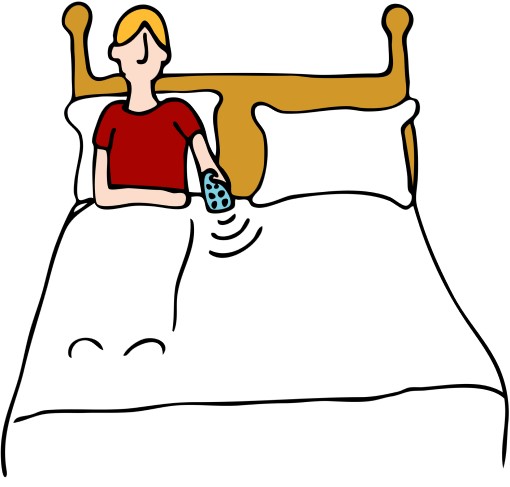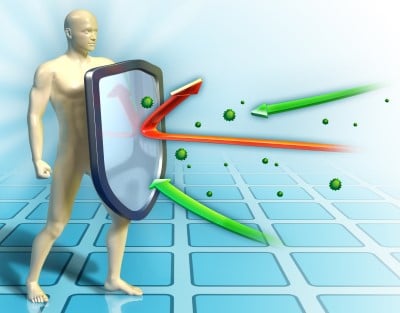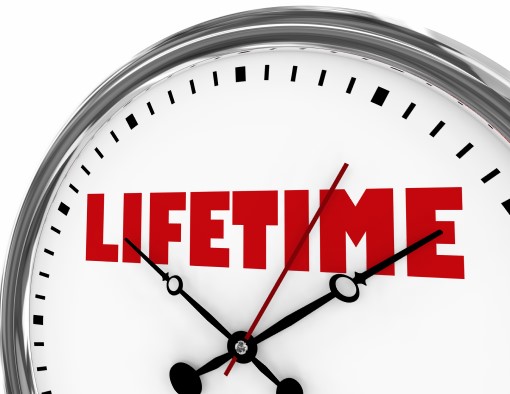
10 Reasons why sleep is not a waste of time even when it feels like it
By Jason Wooden, PhD and Kristal McKinney, LICSW, CMHS
Last updated: September 26, 2024
People feel that sleep is a waste of time for all sorts of reasons including restlessness, busy schedules, lack of time, feeling overwhelmed, and our modern day go-go society. However, we pay a price in health, wellness, and productivity when we neglect sleep.
The benefits of sleep include feeling better, improved outlook, focus and memory, better performance at school or on the job, improved relationships, improved health, and longevity.
If you’re feeling sleep is a waste of time, you’re likely not the only one
We spend a third of our lives sleeping and on a planet of almost 8 billion people you’re not the only one to sometimes feel that sleep is a waste of time.
After all, it’s only natural to wonder what else you could do with the time, right?
If you’ve been short-changing your slumber, you’re in company with some big personalities notorious for skimping on sleep.
Elon musk famously went through a period where he was working 120 hours a week at the Tesla factor and depending on Ambien for the rare times he slept.
You can add to the list Yahoo’s former CEO Marissa Mayer, Jack Dorsey of Twitter, Kelly Ripa, Martha Steward, and Jay Leno.
There’s also Benjamin Franklin, Thomas Edison, Nikola Tesla, Margaret Thatcher…and plenty of others who could be added to the list.
So, what about your average person on the street?
In a Better Sleep Council survey, 15 percent of respondents felt negatively about spending one third of their life sleeping. 30 percent of millennials were more likely to feel sleep was a waste of time.
Nonetheless, you get the idea – there’s plenty of people who question the value of sleep and how much they actually need.
Whether it’s an occasional sentiment or it’s become a general outlook, it’s all the same to your health and wellness.
We’re going to take an honest look at this belief, what’s really at stake, and why you should look at sleep differently.
The reasons why we feel sleep is a waste of time
So, how did we get here?
Unsurprisingly, there are all sorts of reasons people feel sleeping is a waste of time.
Some are overwhelmed with everything they have to do and feel there never seems to be enough time.
Others find going to bed boring and feel there’s something better to do…
You may feel that time is too limited during the work week and need the extra time to de-stress at the end of the day.
And some people actually hate sleep for various reasons.
Oh, did we mention our modern day culture?
We live in a go-go society where there’s the constant push to do more with less. Foregoing sleep to push things to the limit has become a badge of pride.
If everyone else is doing it, it’s not so bad, right?
“I’ll sleep when I’m dead” has become a rallying cry for super achievers.
While skimping on sleep may seem like a good idea in the moment, over the long-term it can cost you.
Let’s look at what’s really at stake.
What’s really at stake when you skimp on sleep
You may think sleep is a waste of time but there’s good reason to look at differently.
Do we think drinking and eating is a waste of time?
Or breathing…?
Of course, we don’t – you can’t live without them as they’re essential for life.
Sleep is just as essential even though it’s easy to take it for granted. During deep restful sleep, the body recovers, heals, and replenishes itself.
Did you know it’s important for memory and learning too?
Unfortunately, the full cost of poor sleep is not always immediately obvious.
Sleep deprived people don’t think as clearly, have a harder time coping, and don’t perform as well at school or on the job.
Relationships and intimacy can suffer.
Would you believe studies have found that when you’re sleep-deprived what it does to your brain is the same as being drunk?
And chronic sleep loss puts you at risk for all sorts of issues – diabetes, high blood pressure, cardiovascular disease, obesity related illnesses, a weakened immune system, anxiety, and depression.
That’s a whole lot at stake.
It should be clear you really need your sleep.
Without it you’re just not at your best.
We’re not wired to operate without sleep.
Even Elon Musk eventually admitted that sleeping less than six hours a night made things worse instead of better. It also likely led to some embarrassing exchanges on Twitter.
The many reasons why sleep is NOT a waste of time
Below, we’ve listed all the positive benefits so you can see how sleep really isn’t a waste of time. Some are obvious and some not so obvious.
What should be obvious after reading through the list is that the time you spend sleeping at night is a great investment that can pay life changing dividends when you’re awake.

1) Feel better
Let’s be honest. When you’re behind the eight ball on sleep it sucks. You wake up feeling tired, miserable, and you’re dragging throughout the day.
On the other hand, we know what it feels like to wake up refreshed and ready to go.

2) Improve your outlook
Poor sleep affects mood and predisposes us to negative thinking. Besides not thinking as clearly, you don’t cope as well with the everyday ups and downs.
Also, did you know there’s a strong link between poor sleep, depression, and anxiety? Many people who struggle with depression also struggle with sleep.
On the other hand, we all know how much better life looks when we’re more rested. What’s more, a study involving 71,173 people found that people with an optimistic outlook could live as much as 15 percent longer.

3) Perform better at school or on the job
Sleep helps you stay focused and concentrate.
For college students, the amount of sleep you get is one of the strongest predictors of academic success. For on the job, studies have found that employees that get adequate sleep perform better and are more productive.

4) Improve your relationships
Poor sleep can add a ton of stress to relationships. It’s harder to do every day normal things like household chores, parenting, spending time with people, and participate in social outings.
For couples, emotional intimacy can suffer due to poor communication, irritation, anger, and stress. Physical intimacy can also suffer from suppressed sex hormones, erectile dysfunction, and low energy.
In contrast, when you get good sleep, you’re less emotional, more patient, less judgmental, and have more energy. It’s so much easier to get along with people.

5) Health and wellness
We’ve already mentioned all the health issues poor sleep is linked to. Even things like chronic pain are worse when you’re not sleeping.
Do you really want to increase your risk for diabetes, high blood pressure, cardiovascular disease, obesity, anxiety, depression, dementia, and a bunch of other health issues?
Some pretty sobering statistics:
- Insomnia patients were found to be more than 5 times more at risk for suicide
- Sleep problems have been linked to a 5-fold rise in stroke risk
- A study found that individuals who slept less than 6 hours had a 41% higher cancer risk
While sleep is no guarantee for good health and wellness, it’ll help your body better maintain itself since restful sleep is when your body repairs and replenishes itself.

6) Improve your memory
Did you know sleep is important for memory consolidation and recall? Research indicates sleep is needed for both short- and long-term memory.

7) Help you lose weight
Getting adequate sleep can help your efforts to maintain a healthy weight. In studies, individuals who regularly sleep less than 7 hours per night are more likely to have a higher average body mass index and develop obesity.
As to why, when you’re sleep deprived, your body produces the appetite boosting hormone ghrelin. It makes less of the hormone leptin, the hormone that tells you you’re full.
Also, staying up late puts you more at risk for late-night snacking.

8) Improved immune system function
Did you know that the human immune system and sleep are interconnected? It’s long been known that sleep deprivation can make people more susceptible to infectious agents.
A UC San Francisco study found that people who slept less than six hours a night were 4 times more likely to get a cold.

9) Avoid a car accident
No one wakes up with having a car accident on the list. Unfortunately, people who sleep for fewer than seven of the past 24 hours have a higher risk of being involved in and responsible for car crashes.
This shouldn’t surprise you as we’ve already mentioned that when you’re sleep-deprived is like being drunk.
According to the Highway Traffic Safety Administration, as many 100,000 police reported crashes each year are caused primarily by drowsy driving in the US.

10) Live longer
Yes, sleep can affect longevity. One study found that sleeping 5 or fewer hours per night may increase your risk of dying by as much as 15 percent.
Another study found that getting less than 6 hours of sleep can double the risk of death in people with high blood pressure or diabetes. For people with heart disease, their risk of death was tripled.
How much sleep do you REALLY need?
So, we just gave you 10 reasons why sleep is NOT a waste of time.
By now, you’re probably saying to yourself “how much sleep do I really need”?
Fair question.
The thing to keep in mind about sleep is that how WELL you sleep is just as important as how LONG you sleep.
To wake up feeling rested and ready for the new day, it’s important to get DEEP RESTFUL SLEEP.
That means you need to get enough cycles through the four sleep stages:
N1 stage: between awake and falling asleep
N2 stage: onset of sleep
N3 stage: deep restorative sleep
REM stage: rapid-eye-movement and dreams
Those later stages are really important because it’s when your body restores and replenishes itself. It’s when important stuff happens in the brain.
A full sleep cycle through all four stages is roughly 90 minutes long. Sleep experts say that adults need at least four to five cycles to feel rested.
That works out to about 6 to 9 total hours of sleep for an adult.
Some people can get away with less and some need more.
You’ll have to find the sweet spot for you.
If you’re not sleeping, you’re wasting time
Contrary to how things may feel, you’re likely wasting time when you short-change your sleep.
We all how much more productive we are during our waking hours when we wake up refreshed and ready to.
When we’re sleep deprived, even the simplest tasks can drag on when we’re sleep deprived. A 15 minute task such as balancing a check book may take an hour. On the job, a morning project may turn into an all-day affair.
A study involving 1007 adults compared productivity for individuals who regularly sleep 7 or more hours to those who sleep less.
Workers who got 5 to 6 hours were 19 percent less productive while those who got less than 5 hours of sleep were almost 30 percent less productive!
However, when it comes to wasting time, it’s not just about how much you get done.
We all know how much more enjoyable the day is when we feel rested and more functional. In studies, poor sleep is found to be a predictor of quality of life.
If you’re not getting the sleep your body needs, you’re missing out on productivity AND quality of life.
You’re wasting the day on less fulfilling hours.
So, sleep more if you want to do more…
And if you want a more fulfilling day.
After all, how well you live during your waking hours is what’s it’s really all about.
3 things to do if you’re ready to get more serious about sleep
Regardless of how you feel about sleep, you pay a price when you neglect. You reap the benefits when you make it a priority.
So, it’s time to change your mindset.
In fact, we all need to look at sleep less as a liability and more as essential to life. It’s really important for self-care and wellness.
Instead of thinking “I’ll sleep when I’m dead”, start saying “I’m sleeping to do more”.
Instead of thinking “sleep is a waste of time”, start saying “I’m sleeping for healthy living and a more fulfilling day”.
Given one in three people struggle with sleep every night, we all need to take it more seriously.
While there’s a long list of things that can affect sleep, there’s plenty you can do to get the most out of it:
Improve your sleep hygiene
What you do during the day, evening, and at night can make a big difference for your sleep. This makes it important to practice good sleep hygiene, the everyday habits that set the stage for deep restful sleep.
For better sleep you should:
- keep consistent wake up & sleep times
- avoid naps
- exercise and movement during the day
- avoid large meals, alcohol, or stimulants such as caffeine before bedtime
- maintain a regular bedtime routine
- avoid using TVs, laptops, or other electronics before sleep
- keep your bedroom dark, cool, quiet, & relaxing
Get a check up
Too many people are unaware how many other medical issues can cause problems or worsen sleep. The list includes things like asthma, allergies, acid reflux and heartburn, heart issues, chronic pain, and diabetes.
You may also be living with an undiagnosed sleep disorder such as sleep apnea.
And even prescription drugs can cause or worsen sleep issues.
A doctor can help you work through any underlying issues that may be making it harder to sleep at night and stay awake when you’re online for meetings.
Talk to someone
If you’re really struggling with sleep and how you feel about it, it worth having a chat with a doctor or therapist.
A type of counseling known as cognitive behavioral therapy (CBT) has been found to be effective for both anxiety and depression. It focuses on changing thinking and behavioral patterns.
You may also be interested in:
8 Powerful Ways Sleep Makes You Better at Life
Millions don’t know they’re at risk for diabetes and poor sleep can make things worse
Your poor sleep may be increasing your risk for dementia
Why some people die in their sleep, others don’t, and what you can do about it
17 Sleep-friendly ways to pass the time when bored in bed
Sources:
1. “Elon Musk Just Explained How He Thinks About Sleep, and So Should You”, Inc.
2. “19 Successful People Who Barely Sleep”, 2012, Businessinsider.com
3. “Better Sleep Council Research Shows Americans Are Torn on Feelings About Sleep”, 2015, Better Sleep Council website
4. “Sleep Deprivation Has The Same Effect as Drinking Too Much, Says Study”, 2017, ScienceAlert
5. “Lack of sleep predisposes us to negative thinking”, 2020, MedicalNewsToday
6. “Depression and Sleep”, 2021, sleepfoundation.org
7. Optimism is associated with exceptional longevity in 2 epidemiologic cohorts of men and women. PNAS September 10, 2019 116 (37) 18357-18362.
8. “Successful Students Tend to Sleep More”, University of Michigan Student Life website
9. The Cost of Poor Sleep: Workplace Productivity Loss and Associated Costs. Journal of Occupational and Environmental Medicine: January 2010 – Volume 52 – Issue 1 – p 91-98
10. About Sleep’s Role in Memory. Physiol Rev. 2013 Apr; 93(2): 681–766.
11. “Sleep and Memory”, 2016, PsychCentral
12. Sleep deprivation and obesity in adults: a brief narrative review. BMJ Open Sport Exerc Med. 2018; 4(1): e000392.
13. Human immune system during sleep. Am J Clin Exp Immunol. 2017; 6(6): 92–96.
14. G?s-coupled receptor signaling and sleep regulate integrin activation of human antigen-specific T cells. J Exp Med (2019) 216 (3): 517–526.
15. “Short Sleepers Are Four Times More Likely to Catch a Cold”, 2015, University of California San Francisco website
16. “Sleep deprived people more likely to have car crashes”, 2018, ScienceDaily
17. “Facts about drowsy driving”, Drowsydriving.org
18. Colten HR and Altevogt BM, eds. Sleep Disorders and Sleep Deprivation: An Unmet Public Health Problem. Board on Health Sciences Policy; National Academies Press. 2006.
19. “Less Than Six Hours of Sleep a Night Could Shorten Your Lifespan”, 2019, American College of Cardiology website
20. “What Happens When You Sleep?”, 2020, sleepfoundation.org
21. “Enhance Your Sleep Cycles”, 2016, Alaska Sleep Clinic website
22. “Poor sleep at night could mean decreased work productivity in the morning”, 2018, American Academy of Sleep Medicine
23. Sleep disruption as a predictor of quality of life among patients in the subpopulations and intermediate outcome measures in COPD study (SPIROMICS). Sleep, Volume 41, Issue 5, May 2018
24. “Talking Points”, World Sleep Society website
Connect with us:
About Us
Better Sleep Simplified® was founded as a place for you to get clear and well-researched information.
Our goal is to make sure you know about your options so that you take action sooner rather than later.
Check us out on YouTube:
Watch and Learn
Helpful sleep tips, interesting sleep facts and statistics you want to know about
Affiliate Disclosure
This site is a participant in the Amazon Services LLC Associates Program and other affiliate advertising programs designed to provide a means for sites to earn advertising fees by advertising and linking to them.
Important: BetterSleepSimplified.com is for informational purposes only and is not intended or implied to be a substitute for professional medical advice, diagnosis, or treatment. Always consult a physician for sleep and health concerns. See additional information.
